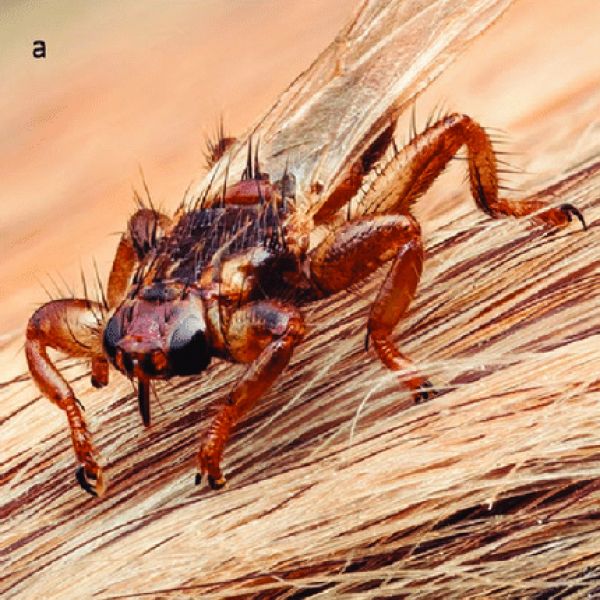News

May 31, 2019
NIFA awards grant for microbial stress tolerance research
The National Institute of Food and Agriculture (NIFA) recently awarded Kevin Hockett $453,000 to assist in research focusing on how microbes tolerate distinct stresses.
Full Article

May 31, 2019
New records show spread of parasitic deer flies across the US
With flattened bodies, grabbing forelegs and deciduous wings, deer keds do not look like your typical fly. These parasites of deer — which occasionally bite humans — are more widely distributed across the U.S. than previously thought.
Full Article

Jan 09, 2019
Huck Researchers Awarded Tyge Christensen Prize
Gang Ning, director of Penn State’s Microscopy & Cytrometry Facility, Todd LaJeunesse, associate professor of biology at Penn State, and Drew Wham, a former graduate student in LaJeunesse’s lab, have been selected to receive the 2017 Tyge Christensen Prize by the International Phycological Society
Full Article
Aug 15, 2016
Ecology Institute announces call for new research center proposals
The Ecology Institute has established a modest funding program to help support the development of new centers that have a central ecological theme. The aim is to add value to ongoing basic and applied ecological research and to foster new collaborations across the Penn State community.
Full Article
Jan 12, 2016
Novel Ecosystems Research Symposium: An afternoon with Penn State Ecologists (April 12th 1-8pm)
Submit abstracts: PSU Novel Ecosystems Research Symposium* As part of the Ecology programs Spring Seminar Series *Novel Ecosystems: Evolution and **Invasion*, and in association with our keynote speaker visit, Dr. Richard Hobbs.
Full Article
Apr 16, 2015
Ecology Institute announces request for proposals
The Ecology Institute has established a modest funding program to strengthen basic and applied ecological research and to foster new collaborations across the Penn State community. Submission deadline is June 1, 2015.
Full Article
Apr 07, 2015
Disease spread through ants
David Hughes talks about studying disease spread through ants.
Full Article
Mar 26, 2015
Honey bees use multiple genetic pathways to fight infections
Honey bees use different sets of genes, regulated by two distinct mechanisms, to fight off viruses, bacteria and gut parasites, according to researchers at Penn State and the Georgia Institute of Technology. The findings may help scientists develop honey bee treatments that are tailored to specific types of infections.
Full Article
Dec 22, 2014
In Mojave Desert tortoise, looking for answers to bigger questions
Huck researchers attempt to guide and improve conservation success through studying the Mojave Desert tortoise.
Full Article
Dec 07, 2014
Living African group discovered to be the most populous humans over the last 150,000 years
New genetic research reveals that a small group of hunter-gatherers now living in Southern Africa once was so large that it comprised the majority of living humans during most of the past 150,000 years.
Full Article